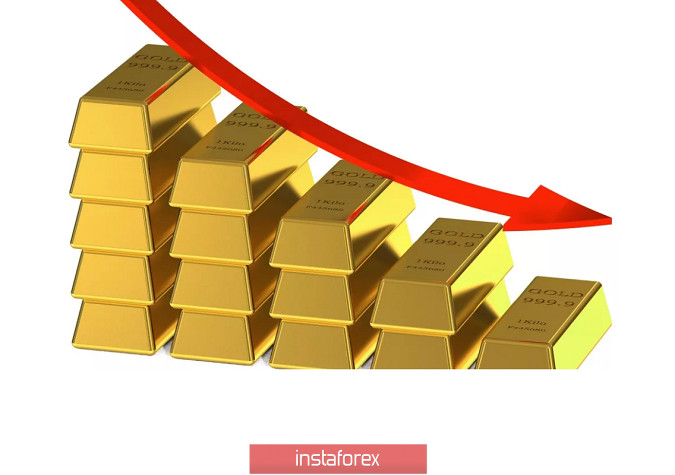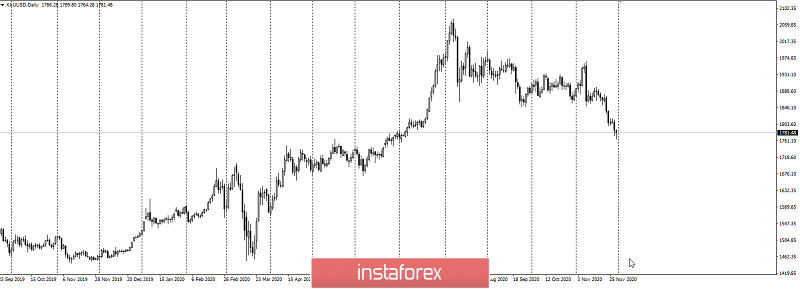
Gold's collapse last week was fueled by several factors: a rally in the stock market, better-than-expected economic data and positive news about COVID-19 vaccines.
But oddly enough, most Western analysts believe that the yellow metal would stabilize around $ 1,800 and then increase further next year.
The Australia and New Zealand (ANZ) Banking Group said the news of successful vaccine trials had no impact on the price of gold, citing real interest rates, inflation and a weaker US dollar as triggers that would push gold to $ 2,100 next year.
Even the Canadian Imperial Bank of Commerce (CIBC) said gold will average $ 2,300 in 2021.
Regarding the recent sell-off in the asset, TD Securities called it as "misguided," saying that the very idea that we would need less incentive is wrong. The bank also said it does not believe that the economy will return to normal in the near future.

Does this mean that the markets are underestimating the amount of stimulus that will be needed next year, especially since Biden has chosen Janet Yellen as the next US Treasury Secretary?
Many say that Yellen can work very well with the Fed to stimulate the economy, describing her as a soft chairman and a proponent of spending when needed.
But, of course, not all banks agree on this.
The Bank of America, for example, is neutral on this matter. Thus, they believe that gold would average slightly above $ 2,000 next year.
Westpac, meanwhile, was on a more negative outlook for gold, predicting it will decline to $ 1,650 an ounce over the next two years.
 English
English 
 Русский
Русский Bahasa Indonesia
Bahasa Indonesia Bahasa Malay
Bahasa Malay ไทย
ไทย Español
Español Deutsch
Deutsch Български
Български Français
Français Tiếng Việt
Tiếng Việt 中文
中文 বাংলা
বাংলা हिन्दी
हिन्दी Čeština
Čeština Українська
Українська Română
Română

